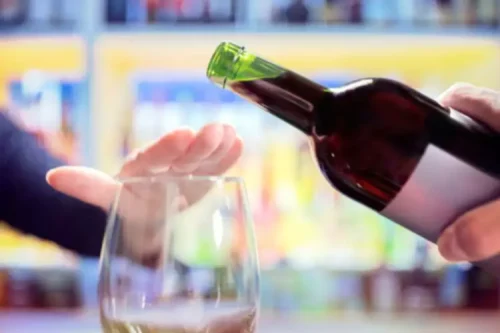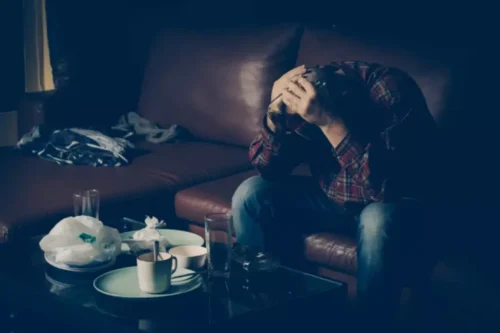
It has prognostic value, as patients with scores less than 10 generally do not need pharmacological treatment. However, symptom-triggered therapy based on the CIWA-Ar protocol depends on correct application of the inventory (17). A metaanalysis of 30 randomized controlled trials compared benzodiazepines versus non-benzodiazepines treatment for alcohol withdrawal syndrome (15). Results from this analysis on tapering methods favored antiseizure medications (gabapentin and carbamazepine) over benzodiazepines (chlordiazepoxide, lorazepam, and oxazepam) for reducing CIWA-Ar scale scores.
- The most commonly used benzodiazepines for alcohol detoxification are chlordiazepoxide, diazepam (long acting) and lorazepam, oxazepam (short/intermediate acting).
- All condition, treatment and wellness content is medically reviewed by at least one medical professional ensuring the most accurate information possible.
- The aim of the present paper was to review the evidence base for the history, diagnosis and management of the alcohol withdrawal syndrome (AWS), with a focus on role of benzodiazepines in AWS.
- In 1953 the first systematic article describing alcohol withdrawal syndrome appeared (76), and later an article exploring the nature of alcohol withdrawal seizures (77).
- Depending on the half-life of the drug, the symptoms may last for 3 to 10 days.
- Most people with a seizure disorder (epilepsy) can drink small amounts of alcohol occasionally without experiencing an increase in seizure activity.
Preventive Strategy
Therefore, even seemingly non-threatening alcohol withdrawal symptoms Sober living house require medical attention. Contact our team at Alcohol Awareness to learn more about safe, effective treatment options for alcohol withdrawal. The problem generally escalates over time, and the health and safety risks also escalate. Getting treatment early can resolve the pattern of alcohol abuse before the individual experiences impaired health, compromised safety, and other negative effects on his or her quality of life and relationships. Often, individuals dependent on opiates should be started on methadone or buprenorphine. Methadone, a long-acting opiate that prevents somatic withdrawal symptoms but does not cause euphoria equivalent to heroin, may be prescribed.
Alcohol Withdrawal Syndrome: Benzodiazepines and Beyond
Unprovoked seizures that occur more than 48 hours after a person’s last drink may be due https://ecosoberhouse.com/ to another cause, such as head injury or withdrawal from other drugs. It is also possible to experience seizures as a result of alcohol withdrawal. This can happen after someone who has misused alcohol for a long time stops consuming it. It is possible for chronic alcohol consumption to cause seizures in people without a history of seizures.

Alcohol Withdrawal Seizures
- The researchers also found that the risk of epilepsy increased as alcohol consumption increased.
- You may be given anxiolytic and sedative medications to help overcome the anxiety and insomnia that is common with alcohol withdrawal.
- Therefore, people who are on epilepsy medications may become intoxicated faster and experience more pronounced side effects.
- Chronic alcohol abuse is linked to an increased risk of epilepsy (seizure disorder).
- Withdrawal seizures can begin within just a few hours after stopping drinking, or they can take up to72 hoursto start.
- Autonomic and psychomotor dysfunction often characterize the withdrawal symptoms.
They should preferably be kept in a room which is quiet and has minimal stimulation and low lighting. Dehydration is an important component of AWS and should be given emergency check up. There should be immediate intravenous access for all patients with seizures or DT. Adequate sedation should be provided to calm the patient as early as possible. Restraints should be avoided, however, may be used as required in order to prevent injuries due to agitation or violence.
- Symptoms of insomnia, anxiety, and mild tremors can occur while there is still a detectable alcohol level in the patient’s blood work.
- This tolerance is the reason why alcohol withdrawal occurs, and consequently, alcohol withdrawal seizures.
- Alcohol itself does not normally cause seizures, but during withdrawal, when the suppressive activity of alcohol is removed, your brain will be more susceptible to seizures than it normally would.
When GABA comes to bind to the nerve cell, it opens up a channel to a negative charge that slows down brain activity. Alcohol and other central nervous system depressants keep that channel open, causing more intense sedating effects. Alcohol is the common name for drinking alcohol, but it’s actually a specific chemical in a broad category of chemicals called alcohol.
Why Alcohol Withdrawal Seizures Are Dangerous
Alcohol withdrawal delirium DT is a medical emergency and requires indoor treatment and monitoring. Brain imaging may be undertaken in suspected cases of neurological insult. Intravenous or intramuscular lorazepam should be preferred and administered at frequent intervals with close monitoring. Lorazepam is more suitable in patients with hepatic disease, in the elderly where there is risk of over sedation and respiratory depression with diazepam.
Alcohol can be dangerous to abuse, but it can also be dangerous to seizures from alcohol withdrawal quit too quickly. If you’ve been drinking heavily for a time and then quit cold turkey, you may experience some of the most dangerous withdrawal symptoms of any substance. Alcohol withdrawal can include dangerous symptoms like seizures, which can come on suddenly and lead to serious consequences. Those who have a history of detoxification are more likely to experience seizures during alcohol withdrawal.
Is Alcohol Dependence the Same as Alcoholism?

Quitting cold turkey can come with some severe withdrawal symptoms, and it can be dangerous. Kindling is caused by the chronic use of drugs that cause GABA receptors’ downregulation. Chronic depressant use and withdrawal can cause hypersensitivity in your nervous system.

Alcohol and Cialis: Risks, Side Effects & Treatment
Suddenly stopping alcohol after abusing it chronically diminishes the inhibitory effects of the body’s GABA receptors. Therefore, people who heavily abuse alcohol should never try to stop drinking on their own. Medically supervised and supported detox reduces the risk of seizures and other related potentially harmful health conditions. Mayo-Smith and Saitz and O’Malley formulated a treatment regimen in accordance with CIWA–Ar score severity 24,51.
Leave a Reply